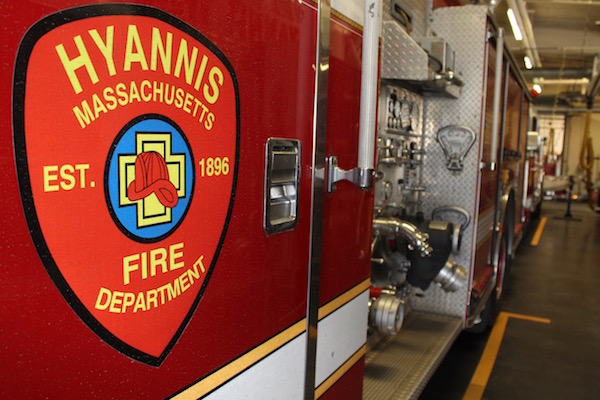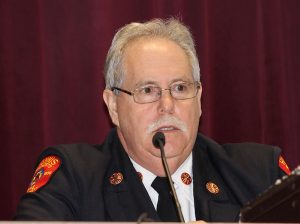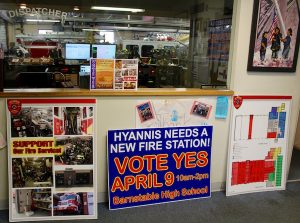BARNSTABLE – Hyannis Fire Chief Harold Brunelle grew up on Bearse’s Way, two blocks from the Hyannis Fire Station, chasing fire trucks with his cousins and dreaming of one day becoming a fireman.
“It’s all I ever wanted to do,” he said.
Now in his 43rd year with the department, for Brunelle these last years have been consumed with the battle to replace the 51-year-old station with a new building that meets the needs of the district.
Since the spring of 2014, the district has taken three votes on the funding for a new fire station, each time falling short of the two-thirds needed to pass the appropriation.
And as the district gears up for its fourth vote on a new fire station on April 9, a group calling itself Citizens for a Better Fire Station is opposing the plans, calling them too expensive.
Both sides agree that the fire station building is too small and is in a terrible state of disrepair. A tour of the station reveals exposed walls, water leaks, over-crowding, sewage backups and damaged flooring, among many other issues.
The current plans call for an $18.6 million, 32,000-square-foot station to be built on the same site on High School Road in Hyannis where the station was built in 1965. That year, the staff—only four full-timers plus call firemen—responded to 589 calls. These days, the station’s 54 firefighters and EMTs respond to over 7,000 calls per year.
The project to construct a new station has been a long time coming. “We’ve been working on it for 15 years and working hard on it for five years. It’s obvious we have to do something,” Brunelle said.
But therein lies the impasse.
On one side is the crumbling Hyannis Fire Station and on the other is a loud call for consolidation of Barnstable’s five fire districts. In between there are some colorful metaphors about parties and dances, friendships dashed and motives questioned. Trust is gone. Cynicism reigns. Honesty is under contention and so is basic math. But one thing no one questions is
































